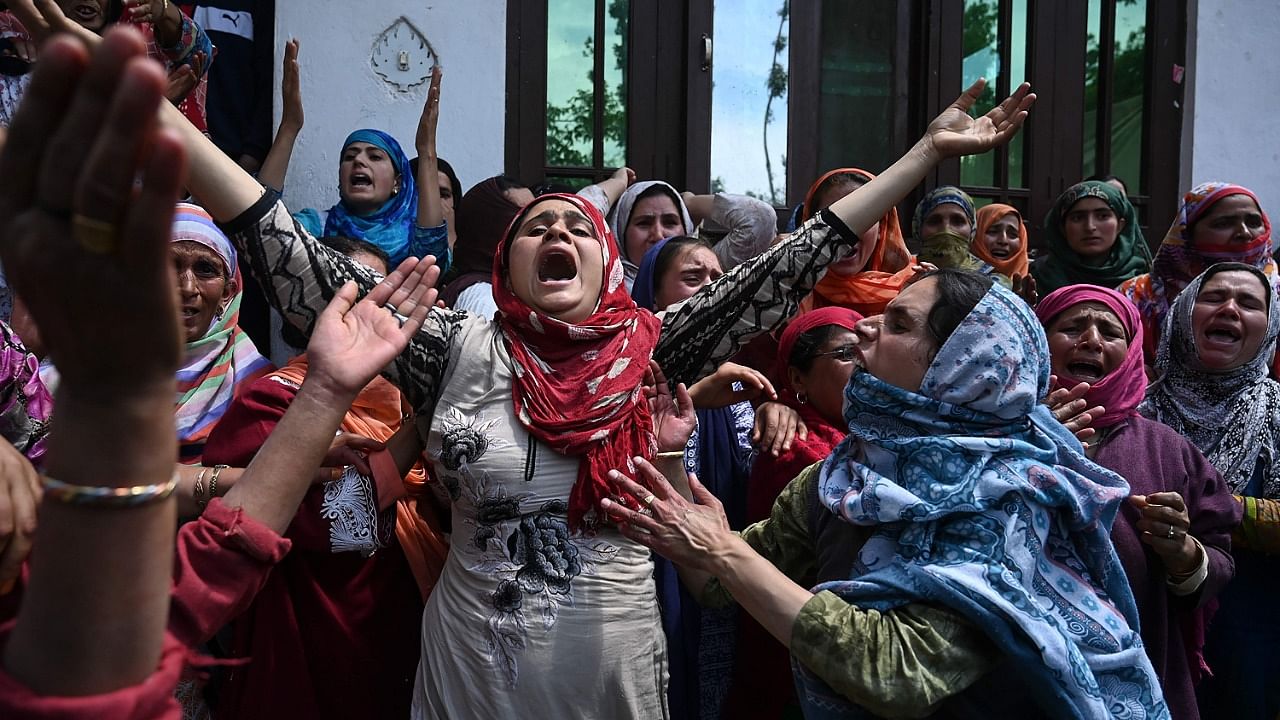
Despite militants and militancy in Kashmir being glamorised by vested interests, the last 32-years of conflict had a devastating effect on the lives of the widows and the children of those terrorists who were killed and left their families to fend for themselves.
A recent sociological research titled: “The effects of armed conflict on the families of slain members of armed groups in Kashmir” published in International Journal of Research and Analytical Reviews (IJRAR) reveals the miserable condition of families of the slain militants.
“In most cases, the death of the family head (militant) led to the problems with mental health, as well as stunted intellectual development and physical growth of his children and widow,” the research carried by Dr Asima Hassan from Kashmir University reveals.
The researcher, who surveyed 100 families across Kashmir for the paper, says 94 per cent of the families had a negative impact due to the killing of the militant, who was head of the family, while in 6 per cent cases they were not impacted.
“Due to the financial problems and lack of social support, the incident had a devastating impact on them (families). In 85 per cent cases the widow didn’t go for remarriage as she had the responsibility of the orphaned children. The widows, who didn’t remarry faced problems like loneliness, mental torture, lack of control and guidance at home, fearful moments, failure of control over children, social insecurity, economic hardships, social apathy, discrimination and rough treatment by relatives and neighbours,” it points out.
The respondents in the research have revealed that the sympathy of the people in the initial days after the killing of the militant vanished with time and they were later left to fend for themselves.
A narrative of heroism has been constructed around the militancy in Kashmir which is believed to be one of the reasons for people to take up arms against the state. In recent years, crowds used to pelt stones to distract security forces during encounters and the protests after the killing of militants. Support is also counted in the attendance at funerals, the serpentine procession of mourners trailing behind the bodies of dead militants.
“The funerals of slain militants had become a matter of pride for grieving families. However, this heroic image and sympathy vanishes within a few days after the militant‘s death and his family is left alone. Though some monetary help is being provided by relatives, neighbours and charity organisations to those families, whose financial conditions are worse, it is either insufficient to make the family financially empowered or it compromises the dignity of the family as the little support is not provided secretly,” the research findings reveal.
It has also revealed that the emotional/mental well being of 93 per cent of the widows and single parent orphans was impacted after the militant's death. “It was observed that the respondents were having multiple psychological problems which included being fearful and feeling insecure. The respondents were having sleep disorders because of fearful thoughts which resulted in fear of getting victimised again,” the findings point out.
The physical health of 81 per cent of the respondents (widows and orphans of slain militants) had also deteriorated after his death. Similarly, 37 per cent of such families faced a problem in finding a match for the children of slain militants while 27 per cent respondents did not answer this question.
“Girls of militant families, dead or alive, such as their sisters, daughters, cousin sisters and other female relatives have lost the chance of getting good, equal and choicest boys. Though marriage with girls related to the members of armed groups has not emerged as a taboo, they were considered undesirable and were often avoided. This was done because of the reasons which included harassment on the part of security forces and the feeling that these families could not pay the dowry,” the research reveals.
A senior police officer said that unfortunately the media has always portrayed and projected militants as some sort of heroes and role models or “at times like an alien kind.”
“And when a terrorist is killed in an encounter with security forces, the media builds a dramatic picture because they need to carry forward the story of a region with a built-in narrative of conflict and terrorism. For Pakistan and its proxies, killings in Kashmir have been turned into statistics which hardly ever give us an inkling into what people go through,” he said.
“It is important to ensure de-fantasisation of conflict situation and de-heroisation of terrorists and terrorism,” he suggested.
Check out latest DH videos here